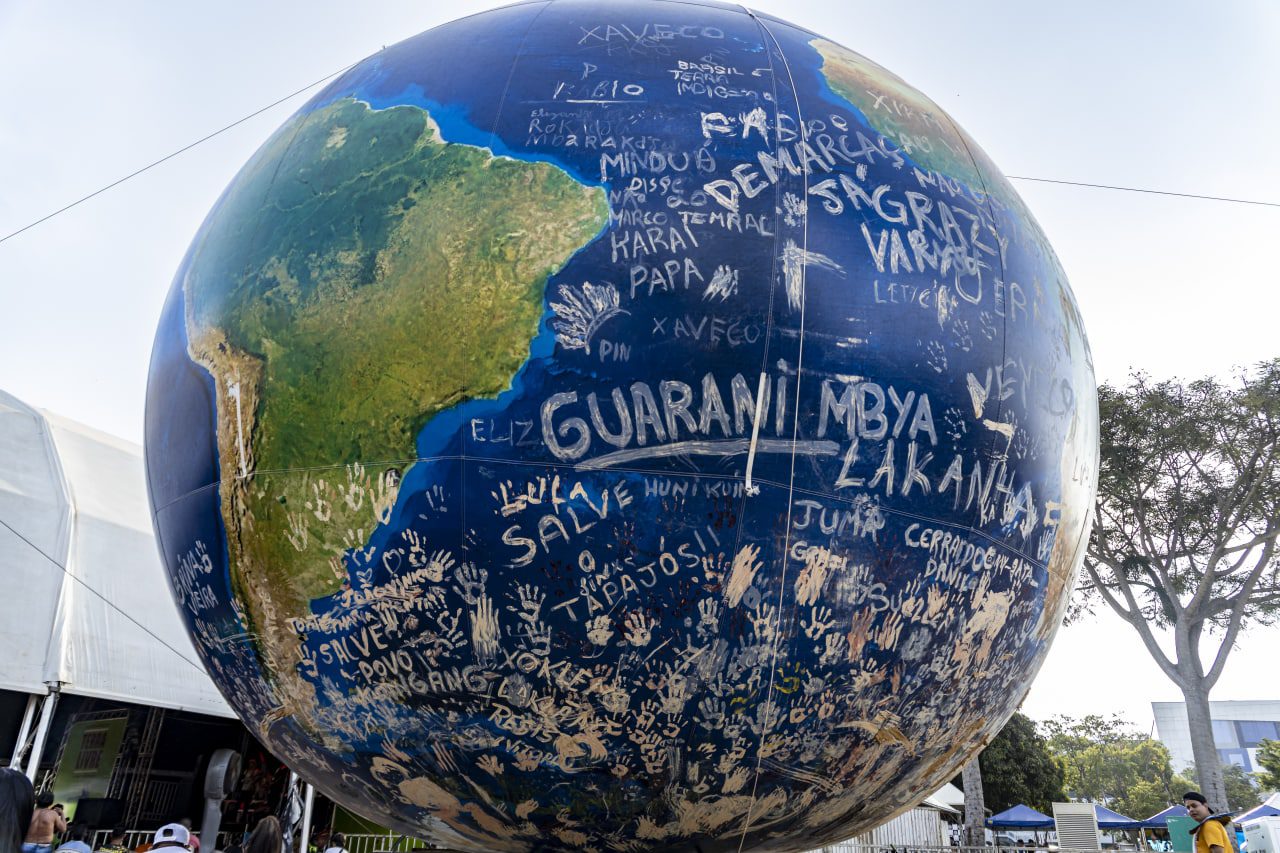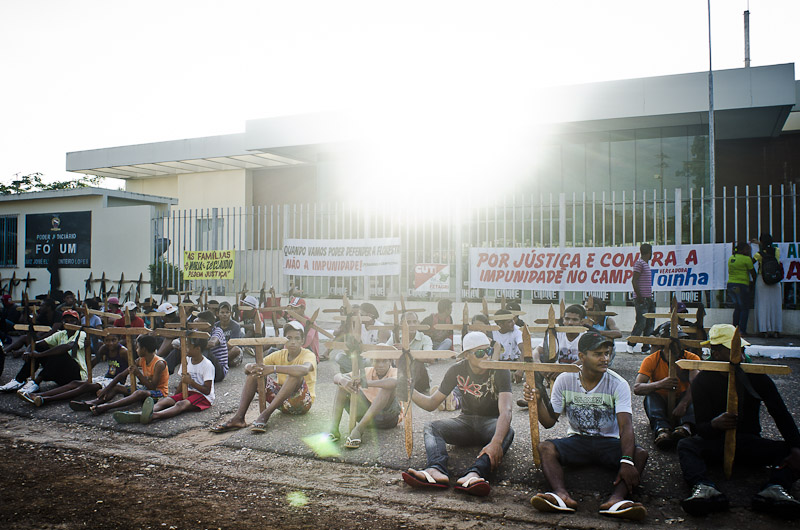
Aboard the Banzeiro da Esperança, young Amazonian leaders are charting pathways for the future
Young people took part in the “Amazônia Reset” gathering, organized by the Global Shapers Manaus Hub, at Estação das Docas
Isabella Lima, from the NINJA Collaborative Coverage at COP30
Amazonian youth have moved from occupying seats as listeners to leading conversations at COP30 in Belém. In different spaces, young people—from Manaus (AM), Santarém (PA), traditional territories, and urban peripheries—are taking the stage, driving debates, asking questions, and presenting proposals as agents who experience the climate crisis in their bodies and their territories.
This shift is expressed in initiatives that place youth as a driving force, such as Global Shapers, a World Economic Forum network that develops young leaders in more than 150 countries. In Northern Brazil, the Manaus Hub mobilized to contribute to the diversity of Amazonian voices at the conference.
“The initiative seeks to develop leadership in young people through social projects in our communities, generating impact and believing that youth is important and capable of transforming realities,” said Aída Lins, curator of the Manaus Hub.
In the Amazon, the crisis is not an abstract concept. It is severe flooding, record droughts, smoke, deforestation, and food insecurity. And this reality pushes young people into leadership roles.
From the territory to the global stage
During the Conference, the Manaus Hub hosted “Amazon Reset at COP30: Amazonian Solutions for a Global Future,” aboard the Banzeiro da Esperança at Estação das Docas. The gathering brought together around 40 participants to discuss climate finance, local impact, and pathways for a sustainable future built from the territory outward.
“Building the Reset from the perspective of youth acting within the COP, speaking on topics such as finance, and bringing youth to think from the local to the global is essential for this moment,” said Shauana Nogueira, organizer of the event.

The first panel, “From Local to Global — How Amazonian Initiatives Can Generate Global Impact,” featured Eurico Aripuanã, representative of the Organization of Indigenous Peoples Apurinã and Jamamadi (OPIAJ), from Pauini, Amazonas; Daniele Kambeba, photographer and activist with Makira-E’ta; Ana Luiza de Limas, general coordinator of the Chico Mendes Committee; and was moderated by Vinicius Amaral, a member of Global Shapers.
Next, the panel “Climate Finance: The Role of Responsible Investment in Driving Change” brought together Angelo Chaves, program manager at Fundo Casa Socioambiental; Gustavo Alves, innovation manager at the Ellen MacArthur Foundation for Latin America; Gelson Henrique, executive director of the PIPA initiative; and was moderated by Netto Santos, a member of Global Shapers.
For Eurico Aripuanã, assuming leadership is both a generational and collective urgency, essential for ensuring a sustainable future.
“Those who must decide for tomorrow are us, who will live in it. I need to live in an environment where I want to be, where the streams, the lakes, the forest, and the animals are well. It’s about taking leadership into our own hands and truly saying what we want or do not want, because it’s not enough to raise our voices and only be consulted without having real decision-making power,” he stated.
Created in 2019, Amazon Reset held an edition outside Amazonas for the first time, adding to the parallel programming of the official negotiations and reinforcing its commitment to the future of the region.
Mobilization to “break the climate bubble”
Among Global Shapers’ projects is Shapers for Climate, which brings together young people from Brazil and other countries with a focus on climate education, communication, coordination, and logistical support for youth participation at COP30.
The initiative invests in productions such as podcasts and digital mobilizations to bring the climate agenda closer to everyday life. The goal is to strengthen diverse forms of representation and break the bubble that still distances environmental debates from the reality of much of the population.


